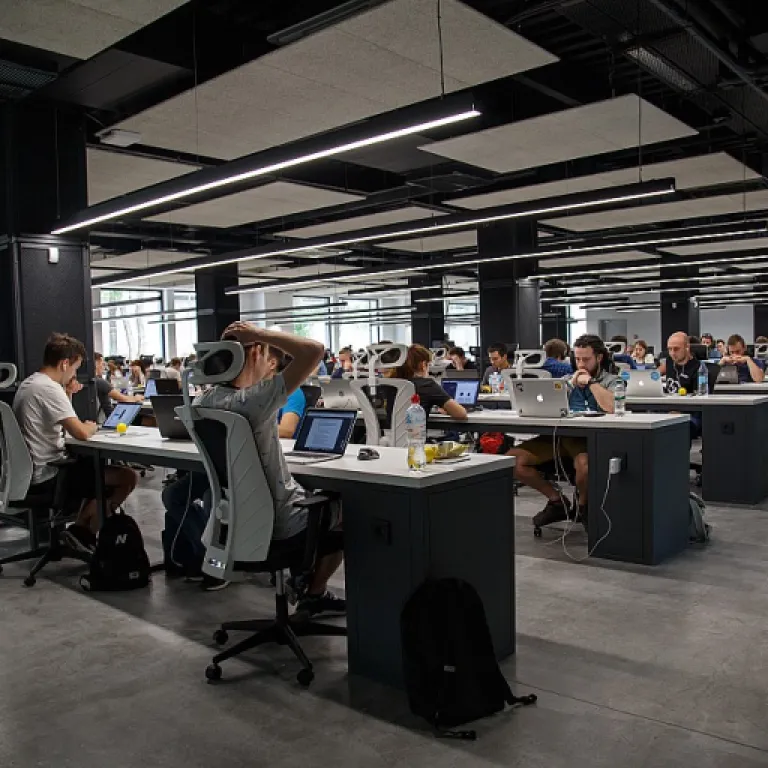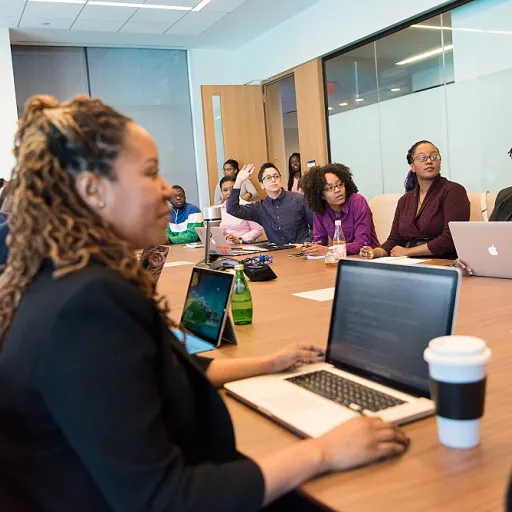
Understanding the evolving role of educators in upskilling
The shifting landscape of teaching and learning
Education is undergoing rapid transformation. The traditional role of teachers is evolving as new demands emerge from both students and society. In today’s world, educators are not just transmitters of knowledge—they are facilitators, mentors, and guides in a complex learning environment. This shift is especially visible in areas like STEM education, where the pace of change in science and technology requires constant adaptation.
Why upskilling is essential for educators
With the rise of digital tools, international collaboration, and sustainability goals, teachers are expected to integrate new methods and content into their classrooms. Higher education institutions, such as the University of Nicosia and the ICSE Academy, are responding by updating their frameworks for teacher education. These efforts are crucial for equipping educators to meet the needs of diverse students and to address global challenges like sustainability in STEM.
- STEM teachers must stay current with scientific advances and digital literacy.
- Educators in Cyprus, and worldwide, are participating in conferences and academy projects to share best practices.
- Professional development is now a continuous process, not a one-time event.
Connecting educators to new opportunities
International conferences, such as those held in Limassol, Cyprus, and at the Raphael Resort, bring together education faculty, teacher leaders, and researchers. These events foster collaboration and highlight the importance of upskilling for both individual teachers and the broader education system. The ICSE Academy and ETE Conference are examples of platforms supporting educators in their journey toward higher education standards and sustainability in STEM.
For those interested in evaluating and developing their professional skills, tools like the Work Genius Assessment can help educators identify strengths and areas for growth. This kind of self-assessment is becoming a key part of the upskilling process, supporting teachers as they search for effective strategies and resources.
Challenges faced by educators in adapting to new skills
Barriers to Embracing New Competencies in Education
Educators today are at the forefront of a rapidly changing landscape, especially in fields like STEM education and higher education. The need for continuous professional development is clear, but the journey is not without obstacles. Many teachers and faculty members in institutions such as the University of Nicosia or the ICSE Academy face significant challenges as they strive to adapt to new frameworks and technologies.
- Time Constraints: Teachers often juggle heavy workloads, leaving little room for upskilling or attending educators conferences such as the ETE Conference in Limassol, Cyprus.
- Resource Limitations: Access to quality training materials and up-to-date STEM resources can be limited, especially in smaller academies or international settings.
- Technological Gaps: Not all educators are equally comfortable with digital tools, which can hinder their participation in projects focused on education sustainability or digital literacy.
- Institutional Support: The level of support from education faculties and university leadership varies, impacting the success of professional development initiatives.
- Changing Curriculum Demands: Adapting to new standards in science, sustainability STEM, or ICSE education requires ongoing learning and flexibility.
These challenges are further complicated by the diverse needs of students and the expectations set by international education frameworks. For example, educators involved in academy projects or STEM teacher training must balance their own learning with the responsibility of educating others. The pressure to stay current is especially high for those participating in events like the educators ICSE conference or working within the education ICSE framework.
Despite these hurdles, many teachers remain committed to their professional growth. Initiatives such as the ICSE Academy and university-led programs in Cyprus are helping to bridge gaps in teacher education and support the development of essential skills. For those seeking practical advice on overcoming these barriers, exploring resources on goal-driven student strategies can offer valuable insights into setting and achieving upskilling objectives.
Key skills educators need for effective upskilling
Essential Competencies for Today’s Educators
As the landscape of education evolves, educators are expected to develop a diverse set of skills to effectively guide students through the challenges of modern learning. In STEM education and beyond, these competencies are crucial for fostering both academic and personal growth among students. The demand for upskilling is particularly evident in international contexts such as the ICSE Academy, ETE Conference, and university-led initiatives in Limassol, Cyprus, where educators gather to share best practices and advance their professional development.
- Digital Literacy: With technology now central to the classroom, teachers must be adept at using digital tools and platforms. This includes integrating online resources, managing virtual classrooms, and ensuring students develop their own digital skills.
- Critical Thinking and Problem-Solving: Educators are tasked with nurturing these skills in students, especially in science and STEM subjects. This requires teachers to model analytical thinking and encourage inquiry-based learning.
- Adaptability: The rapid pace of change in higher education and teacher education means educators must be flexible, ready to adopt new teaching methods, and responsive to emerging trends in education sustainability.
- Collaboration and Communication: Effective teaching increasingly relies on teamwork—whether within an education faculty, across academy projects, or at an educators conference. Strong communication skills help teachers connect with colleagues, students, and the wider community.
- Assessment and Feedback: Modern educators need to design assessments that measure not just knowledge, but also skills like creativity and collaboration. Providing constructive feedback is key to supporting student growth.
- Cultural Competence: In international settings such as the University of Nicosia or the Raphael Resort events, teachers encounter diverse student populations. Understanding different backgrounds and perspectives is vital for inclusive education.
For those seeking inspiration on how to develop these skills or searching for engaging topics to share at their next educators conference, resources like engaging topics for inspirational speaking can provide valuable guidance. These topics can help educators stay motivated and informed about the latest trends in professional development and educating educators.
Ultimately, the framework for upskilling in education is shaped by a commitment to lifelong learning, sustainability, and the ongoing search for effective teaching strategies. Whether in ICSE settings, academy projects, or higher education institutions, the skills outlined above form the foundation for empowering teachers to lead the upskilling revolution.
Strategies for supporting educators in their learning journey
Building a Supportive Learning Environment
Supporting educators in their upskilling journey is essential for the future of education, especially as the demand for STEM education and sustainability grows. Teachers and faculty members in higher education, such as those at the University of Nicosia or ICSE Academy, often face the challenge of balancing their teaching responsibilities with ongoing professional development. Creating a supportive environment can make a significant difference in their ability to adapt and thrive.- Peer Collaboration: Encouraging collaboration among teachers through academy projects, educators conferences, or STEM teacher workshops helps share best practices and foster a sense of community. Events like the ETE Conference in Limassol, Cyprus, provide valuable opportunities for networking and knowledge exchange.
- Access to Resources: Providing easy access to up-to-date resources, such as digital libraries, online courses, and research from international education faculty, ensures that educators can search for and integrate new teaching methods. This is especially important for those involved in ICSE, ETE, or STEM education initiatives.
- Mentorship and Coaching: Pairing less experienced teachers with mentors from established institutions or university academies can accelerate professional growth. Mentorship programs within higher education or STEM education frameworks offer personalized guidance and support.
- Flexible Learning Opportunities: Recognizing the diverse schedules of educators, offering flexible professional development options—such as asynchronous online modules or weekend workshops—can help teachers upskill without disrupting their main content delivery or classroom responsibilities.
- Recognition and Incentives: Acknowledging the efforts of educators who pursue upskilling, whether through certifications, conference presentations, or participation in academy projects, motivates continued learning and sets a positive example for students.
Integrating Upskilling into Institutional Frameworks
For upskilling to be sustainable, it must be embedded into the broader framework of teacher education and higher education policy. Universities, such as those in Cyprus, and international education organizations can:- Develop clear pathways for professional development aligned with the needs of STEM, literacy, and sustainability education.
- Partner with global initiatives and conferences to bring the latest research and strategies to local educators.
- Ensure that upskilling is not a one-time event but an ongoing process, supported by regular feedback and opportunities for reflection.
Leveraging technology to enhance educator training
Integrating Digital Tools in Teacher Education
The rapid evolution of technology has transformed the landscape of education, especially in STEM fields. For educators and teacher education programs, integrating digital tools is no longer optional. It is essential for effective professional development and for keeping pace with international standards. Universities and academies, such as the University of Nicosia and ICSE Academy, are increasingly embedding technology into their frameworks to support educators in Cyprus and beyond.Benefits of Technology-Enhanced Learning
Technology offers several advantages for educators seeking to upskill:- Flexible learning: Online modules and webinars allow teachers to access resources at their own pace, making it easier to balance professional development with classroom responsibilities.
- Collaboration: Virtual conferences, such as the ETE Conference or Educators Conference in Limassol, Cyprus, enable educators to connect, share best practices, and discuss STEM education trends globally.
- Resource access: Digital platforms provide access to a wealth of teaching materials, lesson plans, and project ideas, supporting both science literacy and sustainability in STEM.
Key Technologies Supporting Educators
A variety of tools are shaping the future of teacher education:- Learning Management Systems (LMS): Platforms like Moodle and Canvas help educators organize content, track student progress, and foster interactive learning environments.
- Virtual Labs: Especially valuable for science teachers, virtual labs allow students and teachers to experiment safely and cost-effectively.
- Video Conferencing: Tools such as Zoom and Microsoft Teams facilitate international collaboration, enabling participation in global education conferences and academy projects.
Building Digital Literacy for Sustainability
For educators to fully leverage technology, digital literacy is crucial. Higher education institutions and education faculties are embedding digital skills into their teacher education frameworks. This not only enhances the effectiveness of professional development but also supports education sustainability by preparing teachers to adapt to ongoing changes in STEM and other fields.Best Practices for Technology Adoption
- Encourage ongoing training in digital tools through workshops and online courses.
- Promote peer-to-peer learning within the academy or university setting.
- Participate in international conferences and projects, such as those hosted at Raphael Resort or by ICSE, to stay updated on global trends.
- Evaluate the impact of technology on student outcomes to ensure alignment with educational goals.
Measuring the impact of upskilling among educators
Evaluating Progress in Upskilling Initiatives
Measuring the impact of upskilling among educators is essential for ensuring that professional development efforts are effective and aligned with the evolving needs of education. As the role of teachers expands to include new competencies in STEM, digital literacy, and sustainability, it becomes increasingly important to track both individual and institutional progress.Key Metrics for Assessing Upskilling
- Student Outcomes: Improved student performance in STEM education, science, and literacy subjects can indicate successful educator upskilling. Monitoring results from ICSE, ETE, and other international frameworks helps gauge effectiveness.
- Professional Development Participation: Tracking attendance and engagement in teacher education programs, conferences such as the ETE Conference in Limassol, Cyprus, and academy projects like ICSE Academy provides insight into educator commitment.
- Feedback and Self-Assessment: Regular feedback from educators, students, and education faculty at institutions like University Nicosia or other higher education academies supports continuous improvement.
- Integration of Technology: Observing how teachers incorporate new tools and digital resources into their classrooms reflects the practical application of training received.













